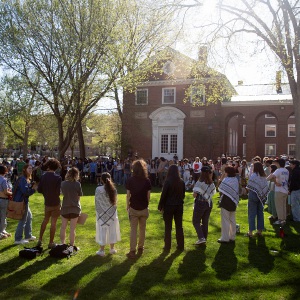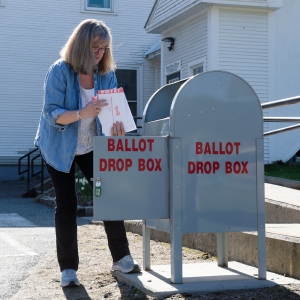Claremont moves to expand city’s ability to charge special fees for infrastructure projects
| Published: 10-16-2023 9:21 AM |
CLAREMONT — The city manager and a majority of the council believe the city is within its legal authority to have some property owners pay a portion of road repairs through a special assessment.
The council, at its meeting last Wednesday, approved a change to the 1977 ordinance governing special assessments for infrastructure projects. Instead of requiring a petition from the city manager signed by half of the affected property owners, the ordinance will now allow the manager to bring forth a recommendation for a special assessment without consent of the property owners. The ordinance leaves in place a second option that two-thirds of property owners could request a special assessment.
The ordinance passed 6-2 Wednesday on the first reading. Before the vote, a few councilors said it was a good tool for the city to have for major projects, but they were adamant that they would not support imposing an assessment on “side roads.”
Mayor Dale Girard, Assistant Mayor Deb Matteau and councilors Jonathan Stone, William Limoges, Nick Koloski and Matt Mooshian voted for the ordinance change. Councilors Spencer Batchelder and James Contois voted no, and Andrew O’Hearne was absent.
“I know we are behind in roads and they are a top priority, but for the amount of money I pay in taxes, I would expect road maintenance would be included in that,” Koloski said.
Matteau pointed out that the council has the option of voting down a recommended assessment from the city manager, but it is important to have the option.
“It gives a tool to the manager and council to move something forward that otherwise would not get done,” Matteau said.
On Friday, City Manager Yoshi Manale said the administration is allowed to impose assessments on some property owners.
Article continues after...
Yesterday's Most Read Articles
 Dartmouth administration faces fierce criticism over protest arrests
Dartmouth administration faces fierce criticism over protest arrests
 Three vie for two Hanover Selectboard seats
Three vie for two Hanover Selectboard seats
 A Look Back: Upper Valley dining scene changes with the times
A Look Back: Upper Valley dining scene changes with the times
 Norwich author and educator sees schools as a reflection of communities
Norwich author and educator sees schools as a reflection of communities
“I believe the RSA (state law) allows for us to create these special assessments,” Manale said when asked whether charging some property owners extra for road repairs but not others was legally sound.
Claremont attorney James Feleen provided the ordinance wording. Contacted Friday, Feleen referred questions to Manale.
Manale has previously mentioned the city’s primary commercial district, Washington Street, as a likely project for a special assessment.
Manale estimates as much as 60% percent of the estimated $1.5 million cost would be covered by the special assessment — the rest by the city — and the amount charged for each property owner would be based on traffic counts.
“We will be looking to see where people go and what the usage is and that is how we would utilize it,” Manale said.
Manale said the assessment, paid over a five- or six-year period, would be “minimal” and in exchange “they would get an enormous benefit.”
“The only other option is a bond because it is a significant cost that the city doesn’t have,” Manale said.
City Councilor Jonathan Stone, who is part-owner of a Washington Street firearms business, acknowledged that a special assessment could be challenged in court, but he agrees that Washington Street would be an appropriate use.
“The big difference is the volume of traffic,” Stone said Friday. “We have a huge influx from Vermont drivers that use our roads but are not paying (property) taxes.”
He agrees with Manale in that Washington Street businesses get maximum exposure with the number of cars that use the street daily.
“It makes sense to use it (special assessment) there,” Stone said.
A recommendation from the city manager would need council approval to be implemented and also require a public hearing and explanation of the formula used for the assessment.
Councilor Spencer Batchelder, along with Jim Contois, was opposed to the ordinance change.
Batchelder said the city may have the authority to impose the assessment, but he did not want to remove the requirement for a petition from 50% of property owners.
“We aren’t the ones who are going to be footing the bill,” Batchelder said.
The ordinance will be presented for a second reading, public hearing and adoption at the next council meeting on Oct. 25.
Patrick O’Grady can be reached at pogclmt@gmail.com.

 Students take down pro-Palestinian encampment at UVM
Students take down pro-Palestinian encampment at UVM Sharon voters turn back proposal to renovate school
Sharon voters turn back proposal to renovate school
